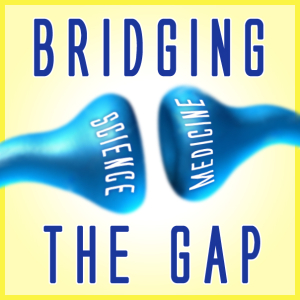 The long lines at coffee shops and large crowds in the library on a university campus often indicate that it is finals week. The disproportionate numbers of students carrying energy drinks and having zombie-like appearances are both dead giveaways as well. While we are stressfully cramming, consuming junk food (“study snacks”), and consequently depriving ourselves of sleep for just a few more hours of studying, how much are we gaining (or losing) from our shift into “study mode” during this week? How does sleep deprivation affect our ability to learn and remember information?
The long lines at coffee shops and large crowds in the library on a university campus often indicate that it is finals week. The disproportionate numbers of students carrying energy drinks and having zombie-like appearances are both dead giveaways as well. While we are stressfully cramming, consuming junk food (“study snacks”), and consequently depriving ourselves of sleep for just a few more hours of studying, how much are we gaining (or losing) from our shift into “study mode” during this week? How does sleep deprivation affect our ability to learn and remember information?
To better understand our sleep habits during finals and all other times of the year, I have worked closely with members of the sleep clinic at Carle Hospital in Illinois. We combined patient experiences with the current literature to better understand what really takes place in our brains while we are resting, and perhaps more interestingly, where our dreams come from.
The two most common reasons why an individual visits a sleep clinic are sleep apnea and insomnia. While sleep apnea, a condition that strongly correlates with increasing rates of obesity, has been relatively successfully addressed with the use of continuous positive airway pressure (CPAP) masks, insomnia remains a challenge for sleep specialists. Every insomnia patient is advised on the most common strategies to help them sleep, including regular exercise, relaxing activities in the evening, and avoiding cell phone use in bed. However, these approaches alone are frequently not enough for someone experiencing a chronic inability to fall asleep. Sleep-inducing medications are often prescribed, but their effects often fade with long-term use.
Evidence suggests that improving sleep quality is extremely beneficial for both learning and the retention of memories. A group at the University of California, San Diego, found that 35 hours of total sleep deprivation significantly decreases verbal learning acquisition. This would suggest that pulling all-nighters, even with the extra studying time, may actually pose a negative effect on our ability to learn. When subjects underwent declarative training and testing upon a 12 hour retention interval, recall in the group that slept during the twelve hours, rather than stayed awake during the day, was significantly improved. Perhaps studying earlier, and allowing for a night of rest before examination time, could actually help with recalling material.
It is widely accepted that sleeping has many benefits associated with memory and restfulness, but the answer to why we dream, and perhaps what our dreams reflect is still unclear. One of the earlier thinkers in this field was Sigmund Freud. He wrote “The Interpretation of Dreams,” where he referred to our dreams as “homage paid to the unsubdued and indestructible in the human mind,” that exists as part of our “unconscious emotional process.” Freud may not be very far off in his assessment of dreams as outputs of our emotions.
Dr. Ernest Hartmann at the Tufts University School of Medicine examined the dreams of individuals who regularly record them before and after September 11, 2001. He found that the trauma of the events that took place not only increased the intensity of the images in the subjects’ dreams, but also heightened feelings of terror and being overwhelmed. Although evidence suggests that dreams are affected by external environment, a study comparing dream settings between Japanese and Americans suggests that dream content is not necessarily driven by cultural factors. In fact, REM, or the rapid eye movement phase of sleep that is associated with dreams, is also present in other mammals, implying that other mammals can also dream. These findings indicate that some aspects of sleep and dreaming are somewhat universal across mammals, but require more research to better understand which aspects are conserved and which are unique to the individual.
By helping us learn, retain memories, and perhaps even dissipate emotion, it is evident that sleep is an essential part of our ability to function and succeed in our lives. The universality of sleeping and dreaming behaviors suggests that the necessity to rest and recuperate is not unique to humans but rather inherent in our classification as mammals. These studies support the need for increased research in the field of insomnia and other sleep disorders to ensure that all those struggling to obtain a restful night’s sleep can get the benefits described above.
Furthermore, addressing the psychology of the sleep deprivation that students incorporate into their lives is absolutely crucial. Mark Twain accurately claimed that “a person who doesn’t read has no advantage over a person who can’t read,” a principle that effectively applies to modern sleep-deprived individuals.
Bridging the Gap focuses on the relationship between basic research and medicine to develop an appreciation for the science that underlies the foundations of modern medicine.



